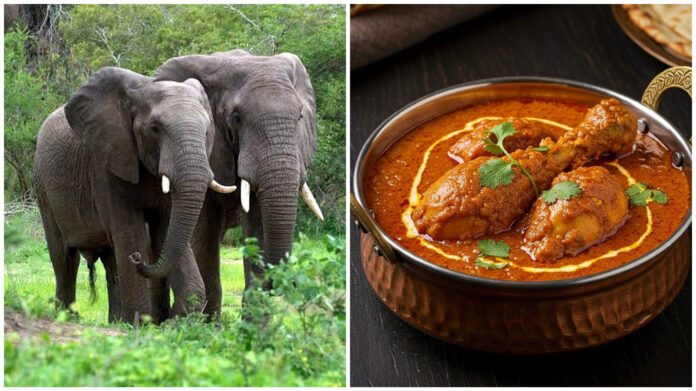
Kerala’s lush forests and diverse wildlife are a source of pride and wonder. Among its most majestic residents are the elephants, revered in the state’s culture and traditions. However, recent incidents have raised concern: elephants have been seen unknowingly consuming non-vegetarian leftovers discarded near forest fringes.
This blog explores how this surprising behavior is not natural but rather a result of human negligence.
The Unnatural Diet:
Elephants are strict herbivores by nature. Their diet consists of grass, leaves, bark, fruits, and other plant materials. Their digestive systems are specifically designed to process plant-based foods. However, in recent times, elephants in Kerala have been found consuming leftovers from restaurants, including non-vegetarian items like chicken curry, egg masala, and porottas. This unusual behavior is not a dietary choice but stems from the easy availability of human food waste near their habitats.
How It Happens:
The rise of tourism, roadside eateries, and poor waste management in areas close to forests has led to unsegregated food waste being dumped carelessly. Hungry elephants, driven by curiosity and the search for easy calories, rummage through this waste. In the process, they end up consuming cooked meats, spicy foods, and even plastics.
Health Risks for Elephants:
The consumption of non-vegetarian leftovers and processed foods poses serious risks to elephants:
- Digestive Issues: Their stomachs are not equipped to handle meat or cooked food.
- Salt and Spice Toxicity: Spices, salt, and oils can harm their internal organs.
- Plastic Ingestion: Mixed waste often contains plastic, leading to fatal blockages.
Human-Wildlife Conflict: Food waste attracts elephants closer to human settlements, increasing the chances of conflict. Elephants may damage property or face aggression from scared locals, leading to dangerous situations for both sides.
The Need for Responsible Waste Management:
To protect Kerala’s elephants, urgent steps are necessary:
1. Proper Waste Segregation: Separate food waste from non-biodegradable items.
2. Scientific Disposal: Restaurants and households near forests must follow eco-friendly disposal methods.
3. Awareness Campaigns: Educating communities on the dangers of feeding or discarding food waste irresponsibly.
4. Stronger Regulations: Authorities must enforce stricter penalties for littering near wildlife zones.
Conclusion: Elephants eating non-vegetarian food is not a quirky behavior to be amused by; it is a symptom of a deeper environmental issue. Kerala’s wildlife deserves better stewardship. Through collective action and mindful waste management, we can ensure that these gentle giants continue to thrive on their natural diet in their natural homes.
END OF ARTICLE…!!



